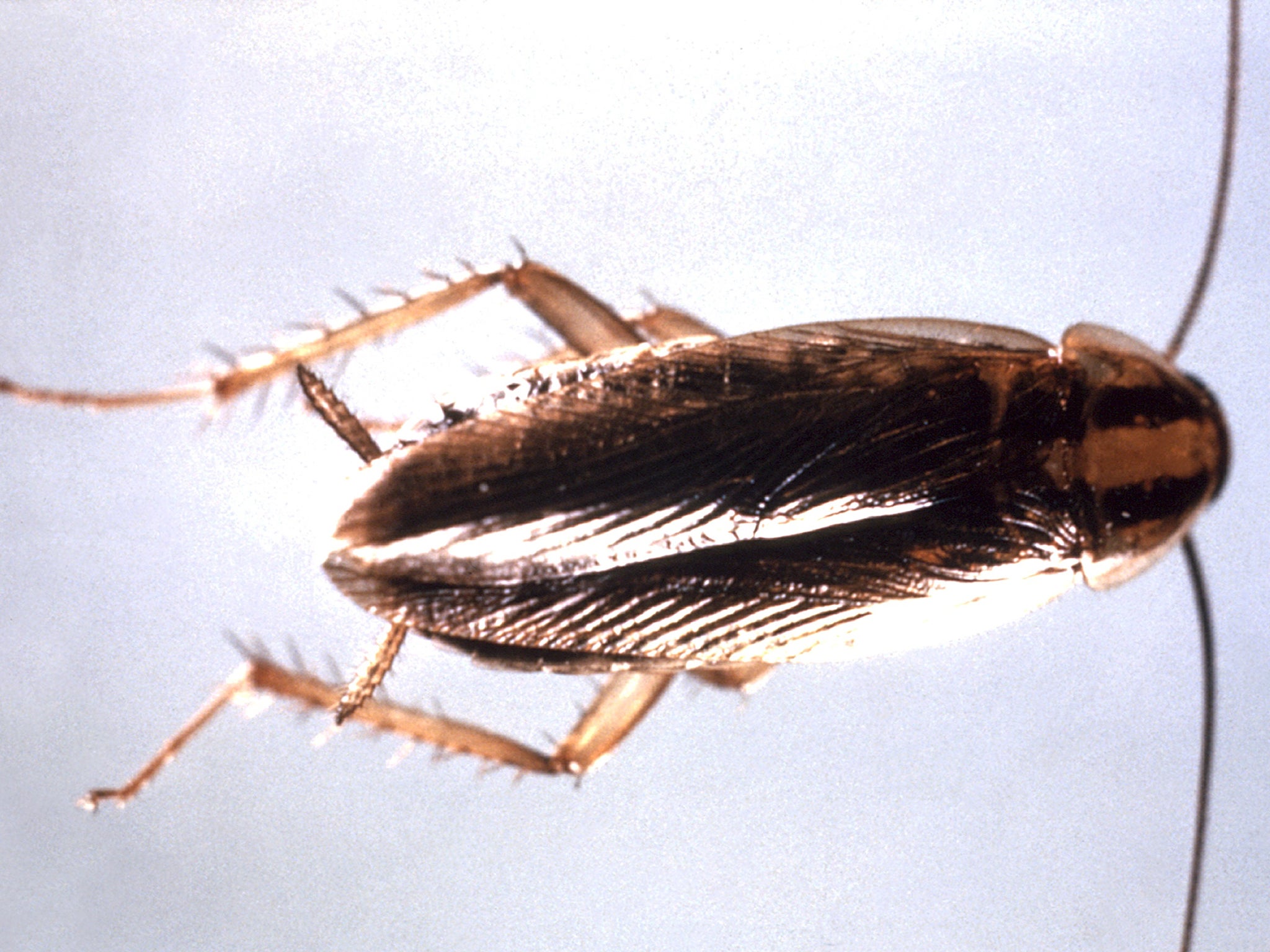Born survivors: How cockroaches lost their sweet tooth in battle to evade sugary traps
German cockroaches evolved to avoid glucose-based baits in household bug killers

It has been argued by scientists in the past that should all humans on Earth be destroyed in a nuclear explosion, cockroaches would inherit the planet, due to their hardy resistance to radiation.
Researchers are now claiming that the insects are resilient in more ways than one, after finding that they have rapidly evolved to avoid pesticides put out to kill them.
In the journal Science, a Carolina State University entomologist, Jules Silverman, found that one European breed of roaches lost their taste for sweet foods in order to render sugary bait used in household bug killers useless.
Silverman first noticed the picky eaters in a Florida kitchen in the 1980s, when a killer product stopped working and cockroach populations continued to rise. Researchers found that many of the insects had lost their sweet tooth and were rejecting the corn syrup flavouring meant to attract them.
In as little as five years, the sugar-rejecting trait had become so widespread that the bait had been rendered completely redundant.
"Cockroaches are highly adaptive, and they're doing pretty well in the arms race with us," said Silverman, discoverer of the glucose aversion in that Florida kitchen during a bait test.
In the study, Silverman and other researchers explain the workings of the genetic mutation that gave some roaches a competitive advantage that enabled them to survive and multiply.
In normal cockroaches, glucose excites neurons that give a positive reaction. In the mutant insects, glucose also causes a reaction in neurons that give a negative reaction. These negative reactions dampen the positive ones and so the brain gets the message that glucose tastes awful. This unusual nerve activity appeared in glucose-hating cockroaches collected from Puerto Rico as well as descendants of the Florida insects.
The research focused on the German cockroach, a much smaller kind of insect than the much-pictured American cockroach. Such fussy eating habits have also been seen in roaches in Southern California, Cincinnati, Indiana, South Korea and Russia.
While the new research is certainly interesting, it probably does not explain why people struggle to get rid of infestations in their kitchens.
Coby Schal, another study author at North Carolina State, said that tests showed these glucose-averted cockroaches are now happy to eat most baits, suggesting that manufacturers have now altered recipes to remove or mask glucose flavours.
Frankly, if the bait you put out isn't working, it's probably because you're using it incorrectly, suggested Schal, who said he consults to the pesticide industry free of charge.
Still, he said, the new work has potential to help many consumers. By studying how cockroaches evolve to evade our poisons, scientists may find clues to designing bait that the pests cannot resist.
It's not clear when the Florida cockroaches first encountered bait with glucose or how quickly they ditched their taste for the sugar, he said. But he said it's reasonable to estimate that it took maybe only five years for that glucose aversion to spread to so many cockroaches that the bait was no longer effective. That's about 25 generations of German cockroaches, which can reproduce about one to three months after they're born, Schal said.
The glucose aversion may have arisen in an individual cockroach in response to bait. Or it may have already been present in just a few individuals when the arrival of the bait suddenly gave them an advantage for surviving and reproducing. Their offspring would inherit the trait and increasingly replace other cockroaches.
Michael Scharf, an entomologist at Purdue University who studies urban pests but wasn't involved in the new work, noted that since the 1950s, cockroaches have shown they can also evolve resistance to insecticides. He agreed the latest results should help scientists develop better products to control roaches.
Subscribe to Independent Premium to bookmark this article
Want to bookmark your favourite articles and stories to read or reference later? Start your Independent Premium subscription today.

Join our commenting forum
Join thought-provoking conversations, follow other Independent readers and see their replies